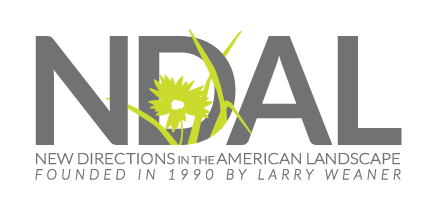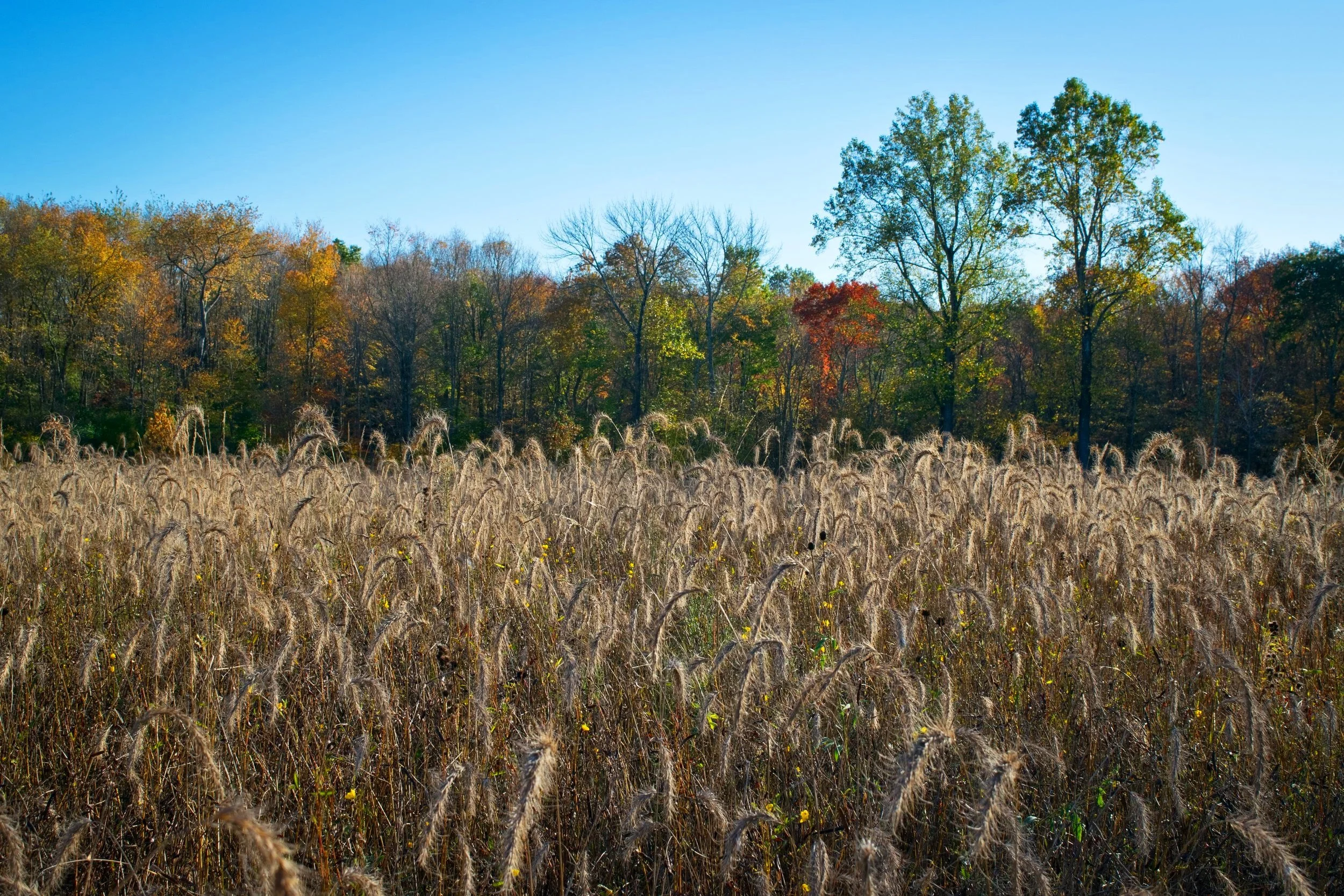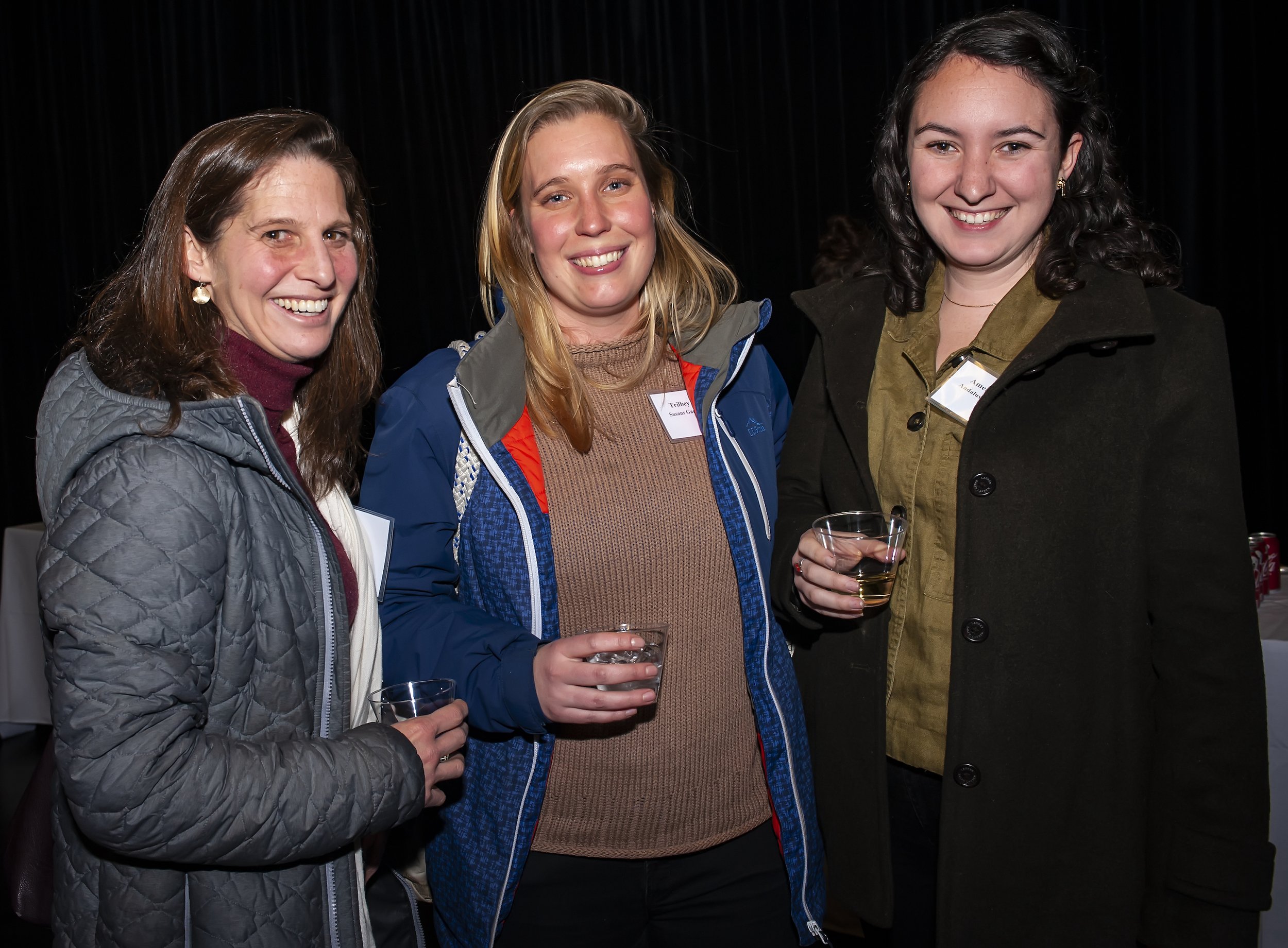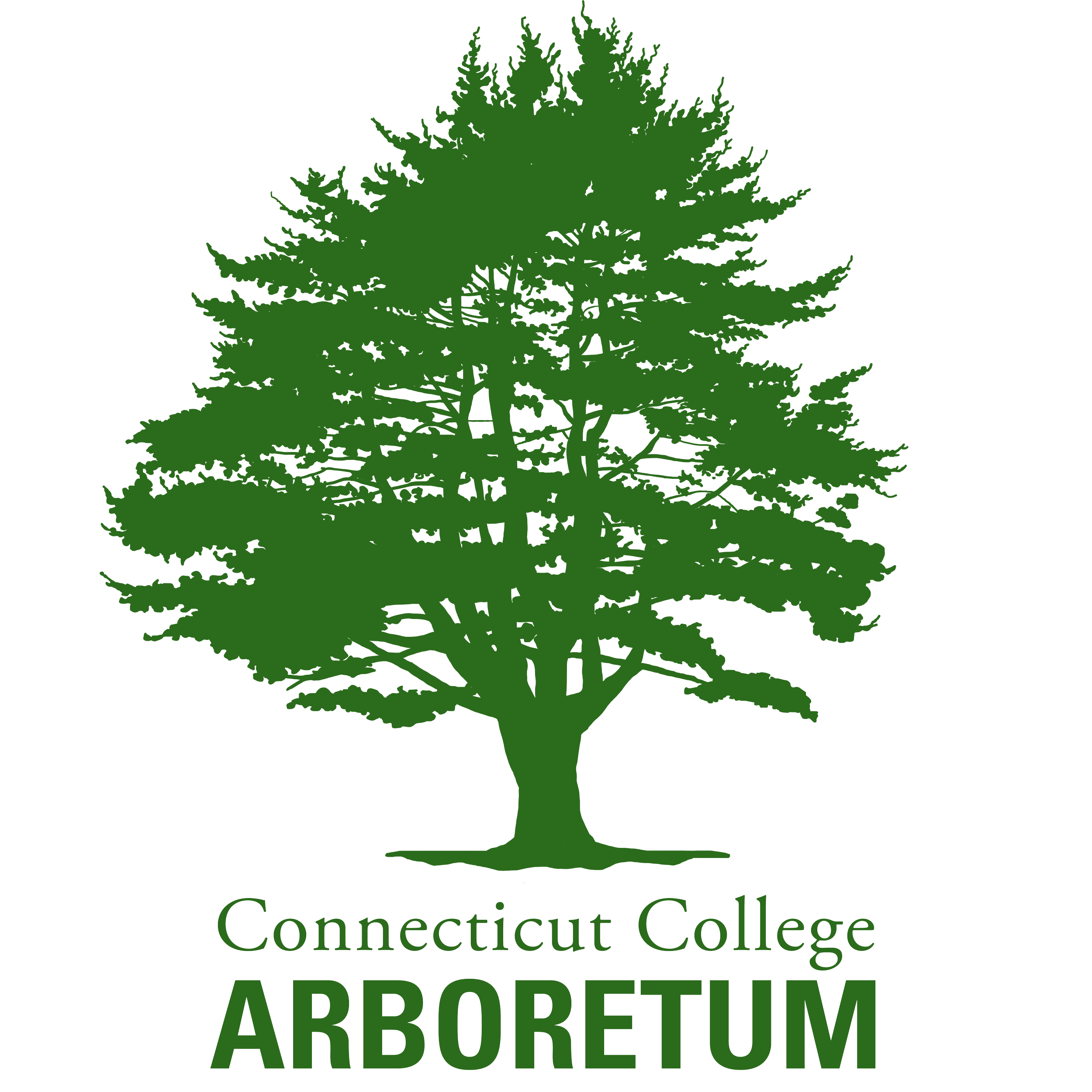Founded in 1990, this annual two-day symposium has a long tradition of celebrating native plants and innovative ecological practice. Presenters reflect the diverse factors that shape our landscapes including landscape architects, landscape designers, horticulturists, ecologists, historians, anthropologists, artists and others. The series offers in-depth explorations of forward-looking and overlooked topics, always seeking to connect theory with practical application. Join us as we continue to connect the dots between ecological restoration, cultural landscape practice, and fine garden design.
January 10-11, 2024
Bryn Mawr College, Bryn Mawr, PA
in partnership with
Morris Arboretum & Gardens
January 17-18, 2024
Connecticut College, New London, CT
in partnership with
Connecticut College Arboretum
January 17-18, 2024
Livestream (Virtual Only)
$360 Regular Early Bird | $200 Student Early Bird (with ID) | (until Dec. 12)
$385 Regular | $225 Student (with ID) | (after Dec. 12)
Register by:
PA location: Jan. 10, 2024 | CT location: Jan. 10, 2024 | Virtual only: Jan. 16, 2024
Recording of full program (CT venue) will be available mid-January and viewable for 3 months to all attendees (PA & CT in-person and virtual attendees).
Scroll down for program details.
CEUs available | See here for details & instructions | 12 CEU hours for most types
Approved: APLD, CBLP, ISA, LA CES, PLNA
Anticipated: CT DEEP, NOFA, SER
Bryn Mawr College is not affiliated with this event and should not be contacted regarding the program.
Day 1
Wednesday, January 10 (PA) & 17 (CT)
Breakfast and check-in at 8:15 AM
Program begins at 9:00 AM
Adjourn at 5:00 PM
Photo by Mark Weaner
Light breakfast & lunch are included both days.
Evening reception immediately following the program with complimentary wine, beer, and hors d’oeuvres.
Endangered Grasslands and Savannas and Their Potential for Recovery, with Emphasis on the Southeast and Northeast (1 hour)
Reed Noss, PhD
National reviews of ecosystem status and trends show that grassland, savanna, and other open fire-dependent ecosystems are generally the most endangered of all ecosystems, in terms of extent of decline, degradation, and risk of further loss. This presentation reviews the ecology and conservation status of grasslands and other open ecosystems, with emphasis on the southeastern and northeastern U.S. but with comparisons to other regions. Strategies for protecting, restoring, managing, and rewilding these ecosystems are discussed.
Forests in New England: Land History and a Hopeful Future (1 hour)
Susan Masino, PhD
The recent report, Wildlands in New England: Past, Present and Future, outlines the great need and tremendous opportunity to protect more “Wildlands.” These landscapes include natural area woodlands that can welcome people, while their management allows natural processes to prevail with minimal human interference. The report includes diverse science on forests and a historical overview of the relationship between people and the land. This workshop will share practical strategies for protecting and revitalizing these natural lifelines.
Panel: Grassland and Forest (45 minutes)
Reed Noss & Susan Masino, moderated by Larry Weaner
In this panel our previous two speakers will compare notes and entertain questions on their views of the historic presence, current status, and restoration potential of grassland and forest habitats. Questions by the moderator will also delve into the decision-making process for determining which to prioritize on individual landscape projects.
Moving Beyond Pretty Spaces (1.25 hours)
Adam DePaul, Shelley DePaul, & Ann Dapice, PhD
Lenape Nation of Pennsylvania council members will discuss creating spaces that move beyond mere aesthetics, incorporating cultural, educational, medicinal, and communal significance. Some topics will include the importance of planting indigenous plants, the construction of spaces that educate about the land they occupy, and indigenous stories and wisdom regarding the relationship between plants, people, food, and the environment.
Indigenizing the Landscape (1 hour)
Lorén Spears, PhD
Lorén Spears, Narragansett, and Executive Director of Tomaquag Museum, will share the historical and contemporary uses of indigenous plants through the design process for the new Tomaquag Museum campus in Rhode Island. The Museum is dedicated to educating the public about Indigenous history, culture, and arts. She will connect to food sovereignty, cultural continuation, as well as share the strategy of Indigenizing the Landscape.
Sustaining Beauty: Revealing Ecologies Through Immersive Experience (1 hour)
Emmanuel Didier, MLA
In this lecture, we will examine how design can provoke change and sustainability by crafting immersive journeys that reveal ecology, topography, and plants as one system within the urban environment. This approach becomes less about pressing landscapes and programs into the public realm as isolated moments; rather, it presents interventions as deeply connected to the larger systems of which they are a part. It will lead us to explore what “sense of place” could mean in a world of rapid transformations. We will reflect on design as a way of revealing natural and cultural history, responding to local geomorphology and climate, and providing artful yet precise interpretations that expose the richness of the world in which we live - inspiring sustainability through beauty.
Day 2
Thursday, January 11 (PA) & 18 (CT)
Breakfast and check-in at 8:30 AM
Program begins at 9:00 AM
Adjourn at 5:00 PM
Photo by Mark Weaner
Light breakfast & lunch are included both days.
Beyond the Garden: Influences From Other Fields and Times (1 hour)
Larry Weaner, FAPLD
Investigating and absorbing the practices of other disciplines can enhance - and at times completely alter - how landscape designers work. Obvious examples include ecology, ethnobotany, and agriculture. Less obvious fields with equal potential include anthropology, writing, and music. Even the works of early thinkers who predated modern science and culture can contain valuable, and surprisingly practical insights. In this presentation, Larry will draw a direct line from insight to project, illustrating how cross-pollination between disciplines, time periods, and contemporary landscape goals has influenced his work.
Urban Pastoral (1 hour)
Ngoc Minh Ngo
In the last two decades, New York City has reclaimed much of the waterfronts along both the Hudson and East River. Many of these new parks are informed by Eric Sanderson's book Mannahatta, with its revelatory depiction of the pre-European, Native American inhabited island of Manhattan as an ecologically bountiful place. The talk will examine Mannahatta's influence on these parks, and plans for the city's future landscape.
Recycled Landscapes (1.25 hour)
Martha Keen & Hans Hesselein, RLA, LEED AP
Many of the landscapes that Apiary Studio creates are made from materials that are typically excavated from demolition sites or thrown out as remnants, cutoffs, or scraps. We are driven by the design challenge to give recycled materials and disused spaces a second life through thoughtful craft and construction. There is so much room to explore what is considered waste, and what is actually sustainable. This presentation will focus on our process and belief that often the lightest touch can be the most revealing solution.
Biodiversity for the Masses: Ecological Horticulture in the Anthropocene (1 hour)
Rebecca McMackin
In 2021, the National Gardening Survey reported that more than half of American households purchased plants specifically to help butterflies, bees, and birds. Ecological horticulture is arguably mainstream. It’s time to take stock of where this movement is and where we hope to go.
Panel: Yesterday, Today and Tomorrow (45 minutes)
Hans Hesselein, Martha Keen, Rebecca McMackin, & Ngoc Minh Ngo, moderated by Bryan Thompson-Nowak (PA) Larry Weaner (CT)
From their highly varied landscape practices our previous three speakers will discuss “people in the landscape” from historic, contemporary, and forward-looking perspectives. The session will include an inter-panel discussion as well as questions and comments from participants.
Breaking Together: Reimagining Ecological Design in an Age of Collapse (1 hour)
Félix de Rosen
We are living amidst a time of social and ecological breakdown that invites us to reinvent how we relate to the planet, each other, and ourselves. How, amidst turmoil, can we respond positively to the weight of this challenge? Drawing from his experience in garden design and large-scale agricultural engineering, Félix will focus on the power of storytelling to invite us to feel the incisive rawness of our times in order to be in fuller service to our world.
Speakers
Ann Dapice, PhD (Lenape/Cherokee), has taught social sciences and Native American Studies at University of Pennsylvania, Widener University, Penn State Abington, and Goddard College. She is Director of Education and Research for T.K. Wolf, Inc., a 501(c)(3) American Indian organization. Her research traces physical, psychological, and cultural losses moving from hunter-gatherer, horticultural, agricultural, to the industrial revolution that have resulted in authoritarianism. Ann received a PhD from the University of Pennsylvania.
Felix de Rosen, MLA, is a transition designer focused on developing bioregional, social, and psychological resilience in the face of climate collapse. He applies his background in political science and landscape architecture to design projects of varying scales and media globally. He is the author of A Garden's Purpose: Cultivating Our Connection with the Natural World, published with Princeton Architectural Press in 2023.
Adam Waterbear DePaul is a Chief of the Lenape Nation of Pennsylvania, where he serves as Tribal Storykeeper and Director of Education. He collaborates with academic institutions on initiatives related to the Lenape people, including land acknowledgements, mascots & representation, programming, and curriculum development. Adam is a PhD candidate at Temple University and a Scholar-in-Residence at Arcadia University, where he teaches classes in World Mythology, Lenape Legends, and Punk Rock. Adam co-curates the Lenape Cultural Center in Easton PA and the exhibit Enduring Presence 2022: Lenape Nation of Pennsylvania Art at Haverford College.
Clan Mother Shelley DePaul serves on the Council of the Lenape Nation of Pennsylvania as Lenape Language Specialist and Treaty Signer Liaison. She teaches Lenape Language classes and presents educational programs on Lenape History and Culture. Shelley has conferred with numerous organizations regarding Lenape horticulture and medicinal plant practices. She is a Pennsylvania State certified teacher with a BS in Secondary Education, English, and an MA in History.
Emmanuel Didier, MLA, is a landscape architect, artist, and founding principal of Didier Design Studio. A leading figure in public garden design, Emmanuel has collaborated with top botanical gardens across the nation. His design practice focuses on revealing site and ecology through respectful and artful interventions, expressing an authentic sense of place/identity, and experientially/intellectually inviting people to connect to nature. Emmanuel teaches graduate-level design studios at the University of Colorado Denver and lectures nationally and internationally.
Hans Hesselein, RLA, LEED AP, is a director of Apiary Studio, a Philadelphia-based design/build landscape practice founded in 2015 by Martha Keen and Hans. He previously served as Executive Director of the Gowanus Canal Conservancy in Brooklyn, NY. Hans has spent time working in Germany as well as at several New York City landscape architecture firms, and holds a BLA from North Carolina State University.
Martha Keen is a director of Apiary Studio, a Philadelphia-based design/build landscape practice founded in 2015 by Hans Hesselein and Martha. Prior to joining Apiary Studio as the horticulture manager, she spent a decade working as a gardener in city parks and public gardens, including Prospect Park in New York and Wyck in Philadelphia. Martha is a graduate of St John's College and the Professional Gardener Program at Longwood Gardens.
Susan Masino, PhD, is the Vernon D. Roosa Professor of Applied Science at Trinity College and a joint appointment in Neuroscience and Psychology. Her research focuses on promoting and restoring brain health and on the relationship among metabolism, brain activity, and behavior. In addition to her laboratory research Dr. Masino is interested in how public policies can improve brain health - with a special focus on New England’s amazing forests - and is involved in local educational and environmental issues. During 2018-2019 she was a Charles Bullard Fellow in Forest Research at Harvard and published the seminal paper on the benefits of proforestation for climate change mitigation, biodiversity, and public health.
Rebecca McMackin is an ecologically-obsessed horticulturist and garden designer. She spent a decade as Director of Horticulture of Brooklyn Bridge Park, where she managed 85 acres of diverse parkland organically. Their research into cultivating urban biodiversity and ethical management strategies has influenced thousands of people and entire urban parks systems to adopt similar approaches. Rebecca has recently completed a Loeb Fellowship at the Harvard Graduate School of Design and designed a native wildflower garden for the entrance of the Brooklyn Museum. She has been published by and featured in The New York Times, the Landscape Institute, and on NPR and PBS; and holds MScs from Columbia University and University of Victoria in landscape design and biology.
Ngoc Minh Ngo is a New York–based photographer and author of Bringing Nature Home: Floral Arrangements Inspired by Nature (Rizzoli 2012), In Bloom: Creating and Living With Flowers (Rizzoli 2016), Eden Revisited: A Garden in Northern Morocco (Rizzoli 2019), and New York Green: Discovering the City’s Most Treasured Parks and Gardens (Artisan 2023). Her images have been published in international publications such as The World of Interiors, Architectural Digest, and T Magazine. She has also exhibited her work at the Musée Yves Saint Laurent in Marrakesh and Wave Hill Garden in New York. She is the recipient of the Larry Lederman Landscape Photography at the New York Botanical Garden in 2023.
Reed Noss, PhD, is a naturalist, ecologist, and conservation biologist with special interests in ecosystem conservation, landscape conservation planning, disturbance ecology, and rewilding. He is a former Editor-in-Chief of Conservation Biology, Past-President of the Society for Conservation Biology, and is an Elected Fellow of the American Association for the Advancement of Science. He is Chief Science Advisor for the Southeastern Grasslands Institute and an independent conservation consultant.
Lorén Spears, PhD, enrolled Narragansett Tribal citizen and Executive Director of Tomaquag Museum, is an author, artist, and curator. She founded Nuweetooun School & the Indigenous Empowerment Center. Lorén holds a Master’s in Education and received a Doctor of Humane Letters, honoris causa, from the University of Rhode Island for her dedicated work.
Larry Weaner, FAPLD, founded Larry Weaner Landscape Associates in 1982 and established NDAL in 1990. He is nationally recognized for combining expertise in horticulture, landscape design, and ecological restoration. His book Garden Revolution: How Our Landscapes Can Be a Source of Environmental Change (Timber Press 2016) received an American Horticultural Society (AHS) Book Award in 2017. In 2021 he received the AHS Landscape Design Award and the Association of Professional Landscape Designers Award of Distinction.
“The breadth of knowledge and expertise was fantastic. All of the presentations were unique, but also intricately connected on some level. It provided a great deal of questions and discussions that opened thought provoking topics.”
“My brain was definitely on fire with ideas and how to apply them into my practice and share them with others.”
Fees
Regular Rate (in-person & virtual)
$360 if registered by Dec. 12, 2023
$385 if registered after Dec. 12, 2023
Student Rate - with ID (in-person & virtual)
$200 if registered by Dec. 12, 2023
$225 if registered after Dec. 12, 2023
Register by:
Jan. 10, 2024 (PA location)
Jan. 10, 2024 (CT location)
Jan. 16, 2024 (Virtual only)
NDAL Participants Portal & Materials:
When registering for the symposium on the NDAL Participants Portal you will be asked to either sign into your existing account or create one. This account will give you exclusive access to the session recordings and course materials. These materials will be available until three (3) months after the live event date.
To register multiple staff members at once, please email info@ndal.org with their full names, email addresses, and PA/CT/virtual choice. We can then register them and send an online invoice for payment.
Registration will be refunded only if notification is received before ten (10) working days prior to the event less a $10 processing fee.
Students and recent graduates are invited to apply for scholarships granting free admission to the Symposium. Four scholarships will be awarded - two per venue (or virtual if desired). The scholarships honor Darrel Morrison, FASLA, Senior Honorary Faculty Associate, University of Wisconsin-Madison, Department of Planning and Landscape Architecture and Glenn Dreyer, Connecticut College Arboretum Director Emeritus.
Eligibility: Current undergraduate/graduate student or matriculation in 2023.
Application deadline - EXTENDED: December 7, 2023.
Recipients notified by: December 8, 2023.
Applicants will be notified by December 8 so that anyone who is not selected has time to register for early-bird admission, which ends on December 12.
All student scholarships have been awarded. Thank you for your interest and please try again next year! In the meantime for this year’s Symposium, if you are a current student you can register under the student rate.
Photo by Gina Vecchione Photography
Student Scholarship – Free Symposium Admission
“Always good ‘intellectual exercise’ attending this Symposium.”
Contact
Registration, NDAL Portal, & Virtual Only Questions:
Sara Weaner Cooper
Executive Director
New Directions in the American Landscape
sweaner@ndal.org
510-518-0430
Pennsylvania, January 10-11, 2024 Questions:
Stephanie Bruneau
Assistant Director of Adult Education
Morris Arboretum & Gardens
sbruneau@upenn.edu
215-247-5777 Ext: 156
Connecticut, January 17-18, 2024 Questions:
Maggie Redfern
Director
Connecticut College Arboretum
mredfern@conncoll.edu
860-439-5060







